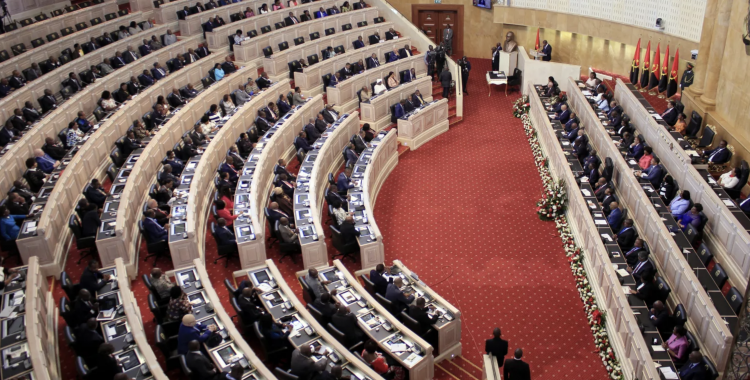"On the contrary, the fact that the diploma expressly states that crimes of corruption, embezzlement and money laundering are not subject to amnesty is a clear realization of this program. Interpreting this differently is to violate the rules of legal hermeneutics", Marcy Lopes responded to one of the main concerns raised by the deputies during the discussion of the proposed law.
The Amnesty Law proposal was approved with 113 votes in favor of the Popular Movement for the Liberation of Angola (MPLA), the Social Renewal Party (PRS) and the Humanist Party (PH), 83 abstentions from the National Union for the Total Independence of Angola (UNITA), and no votes against.
The government official responded to the concern whether the public agent who commits property crimes will be amnestied, that those who commit crimes related to the management of the public treasury "because and in the exercise of their functions" commits the crime of embezzlement and the proposal excludes this type of offense from the amnesty.
"So, it seems to me that the doubt you raised is resolved because the objective of this diploma is not to circumvent the rules of the fight against corruption", said Marcy Lopes.
The draft law, which is now being discussed in the specifics, is an initiative of the President of the Republic, within the scope of the celebrations of the 47th anniversary of national independence and aims to "see that this commemorative event is reflected in the social order established in the country, without excluding citizens deprived of their liberty, giving them new political, social and personal and family reintegration opportunities", explained Marcy Lopes.
According to the minister, the proposed law, with seven articles, intends to grant amnesty for certain types of crimes and exclude others, which, due to their nature, gravity and social disapproval, will not be amnestied.
The first article establishes that all common crimes, punishable by imprisonment for up to 10 years, committed by nationals or foreigners, in the corresponding period between 12 November 2015, the date on which the Amnesty Law in force was passed, and 11 November 2022.
The proposal considers military crimes to be amnestied, punishable by prison sentences of up to 10 years, with the exception of intentional crimes committed with violence that have resulted in death, also pardoning crimes that, not being amnesty, have the penalty reduced by up to a quarter.
Regarding the exceptions, Marcy Lopes enumerated the intentional crimes committed with violence or threats to people that resulted in death or when a firearm was used.
The list of crimes that did not merit leniency from the State include crimes of trafficking in narcotics and psychotropic substances of a serious level, crimes of trafficking in persons and sex trafficking in persons, crimes of trafficking in weapons and war munitions, penetrative sexual crimes, sexual crimes against persons under 18 years of age or those committed through sexual aggression, crimes of promotion and assistance to illegal immigration.
Regarding sexual crimes, the minister welcomed the warning left by MPLA deputy, Sara Fialho, about the danger that the proposed law could erase "forever from the life of those who committed them, as long as there is no penetration".
"Sexual abuse is a crime with or without penetration and if the victim is under or over 18, it is always a crime", said Sara Fialho.
The list of crimes that fall outside the amnesty also includes embezzlement, corruption and money laundering, environmental crimes, crimes that result in vandalization, destruction or deprivation of public goods, crimes committed against the security of the State, which do not admit freedom. conditional under the law, those of incitement to public disorder, popular uprising and coup d'état, as well as crimes that are imprescriptible under the terms of the Constitution and the law.
As for the assets seized, the holder of the Justice and Human Rights portfolio stressed that "the purpose of this rule is to prevent amnesty from being a source of unjustified enrichment and for this reason it provides that assets that have been seized are declared forfeited in favor of the State in criminal proceedings covered" by the law, unless the assets seized must be returned to their legitimate owners.







